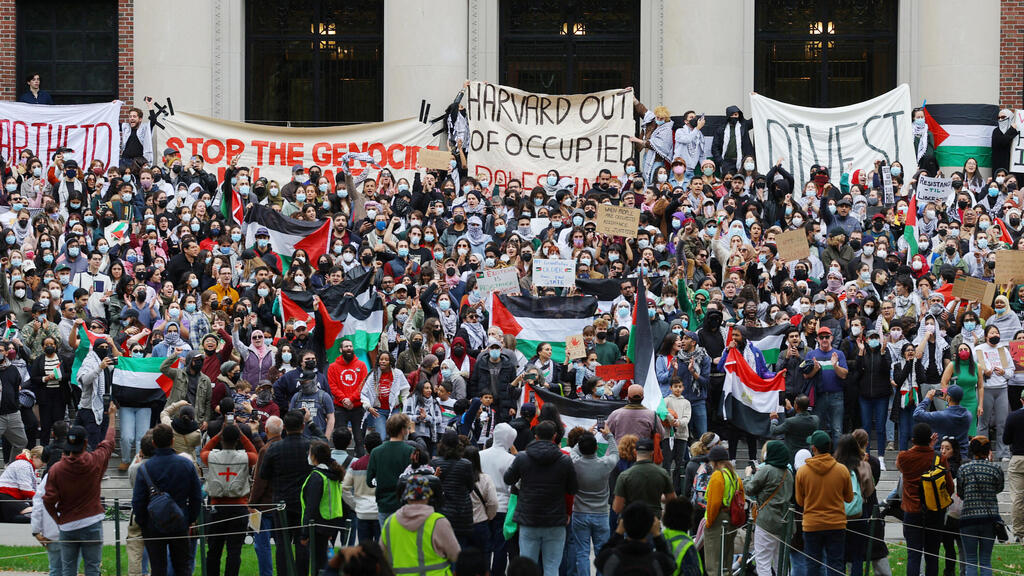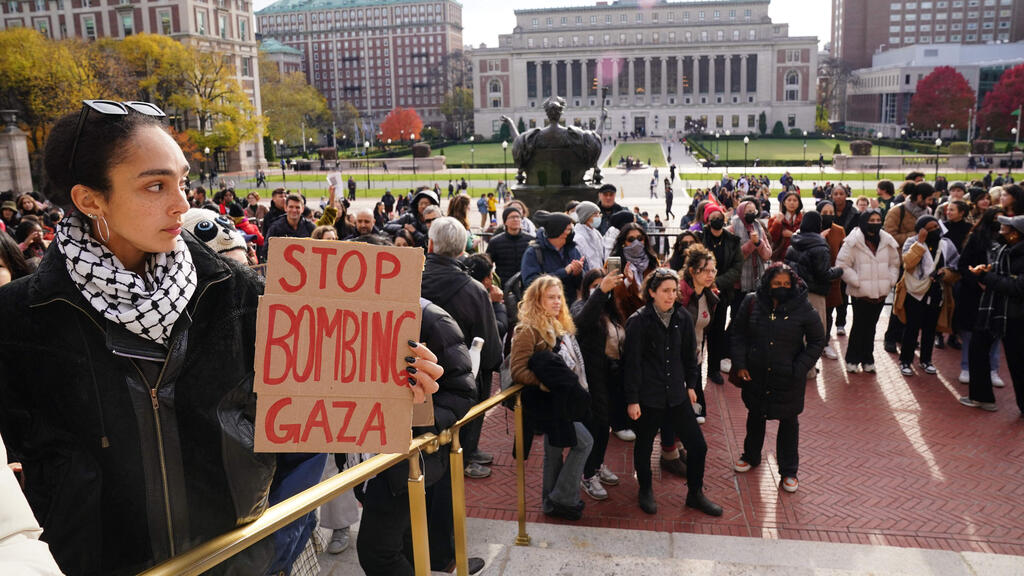Jewish students on U.S. college campuses say they feel significantly less safe than they did before the Hamas massacre in Israel on October 7 and most do not believe that their university has responded properly to expressions of antisemitism on campus.
More stories:
A new survey released Wednesday that was conducted by the Anti-Defamation League and the campus organization Hillel International compares antisemitism on campus prior to and after the Black Saturday of October 7 and finds that nearly three-quarters of Jewish students, or 73%, and 44% of non-Jewish students, have experienced or witnessed antisemitism since the start of the 2023-2024 school year. At the same time, more than 75% are dissatisfied with their university’s response to antisemitism on campus.
There has been an "alarming increase" in antisemitism on college campuses in the wake of the October attacks, according to the ADL.
Key indicators of safety and acceptance among Jewish students witnessed a considerable decline post-October 7. According to the survey, prior to the Hamas terror attack, a majority of Jewish students felt physically and emotionally secure on campus. However, after October 7, there was a substantial decrease in feelings of safety and comfort. Only 46% of Jewish students reported feeling physically safe after that date, contrasting sharply with the 67% pre-October 7. Similarly, emotional safety dropped to 33% from 66% in an earlier survey.
“These trends highlight the crucial importance of fostering supportive environments for Jewish students on campus. The widespread experiences with antisemitism among students are alarming," Adam Lehman, president and CEO of Hillel International, said.
ADL CEO Jonathan Greenblatt added that "no student should feel threatened or intimidated on campus. No student should feel the need to hide their religious or cultural identities. No parent should ever have to wonder whether it’s safe to send their kids to certain schools – but that’s the sad reality for American Jews today."
Most students surveyed are dissatisfied with their university's responses to antisemitic expressions.
Even before the conflict, a majority of students felt their universities were inadequately addressing anti-Jewish prejudice. Post-October 7, dissatisfaction among Jewish students regarding their universities' handling of the situation in Israel and Gaza notably increased, contrasting starkly with their non-Jewish counterparts. Some 52% of Jewish students expressed dissatisfaction with their university’s response to the situation in Israel and Gaza, compared to 25% of non-Jewish students.
“There's a tangible sense of increased threat among Jewish students, but there's a significant lack of adequate measures to address this growing fear of antisemitism by college leaders,” according to Greenblatt. "University administrators need to wake up and recognize that Jewish students uniquely need protection now – and policymakers must step up."
The poll surveyed 3,084 college students in the U.S. – 527 of them Jewish – from 689 campuses across the country. The annual survey was conducted in two rounds: the first from July 26 to August 30; the second about a month after the Oct. 7 terror attacks in Israel, from November 6 to 10. About 70% of respondents from the first round also participated in the second survey.





